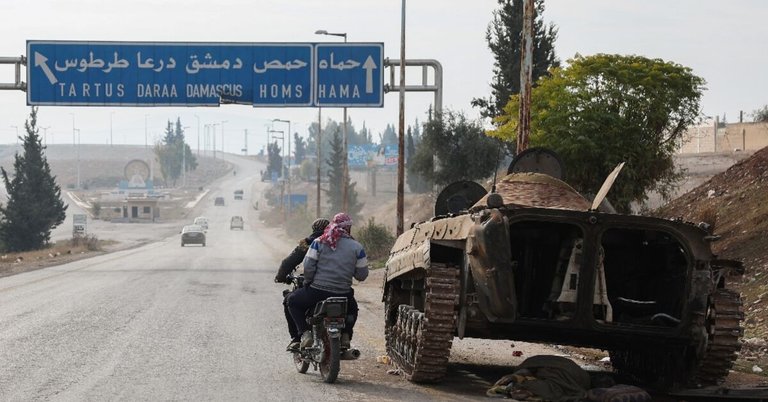 Source
SourceSyrian rebel leader Abu Mohammed al-Golani is in prime-time mode, following the stunning victory of his group-led offensive over the regime of Bashar al-Assad, which seems to have come to an end according to the first reports coming out. The (former?) President left Damascus by plane before the storming entry of the rebels. In late November the Islamist rebels began an electric march towards Damascus, first taking the critical city of Aleppo. Hama and Homs would follow. In a sign that the power of the deposed ruler was sustained on false piles, the resistance was little and many instead desertions in his security forces, attending to the rebels' commitment that they were not seeking bloody revenge but to topple the Baath rule, protected mainly by Iran and Russia. Forces loyal to the government would only control about 14% of the provincial capitals, including one, Tartus, which hosts a major Russian base and has been the main source of support for al-Assad. In a region racked by conflict, the abrupt, lightning end to the latter opens up new questions about its immediate future.
The composition of the Syrian opposition is a controversial mix of groups—Hayat Tahrir al-Sham, the main one, once linked to al-Qaeda, and others backed by Turkey or the United States—which have at times been at odds with each other. It is unclear how they will relate to each other after their military success, with some concerns arising about their Islamist character, both outside and inside Syria. Meanwhile, Mohammed al-Golani has ordered his men to respect the state institutions, and even not to fire shots in the air. So, the prime minister will remain in charge of government business until further notice. Operations at Damascus airport are reported to be halted. Many stores were closed yesterday, Saturday, but in those open prices were three times higher. “My feelings are indescribable,” a young lawyer celebrating al-Assad's defeat Sunday told AP. “After the fear that he and his father made us live in for many years, and the panic and state of terror that I was living in, I can't believe it.” The al-Assad family had ruled the country for the past 50 years.
 Source
Source
